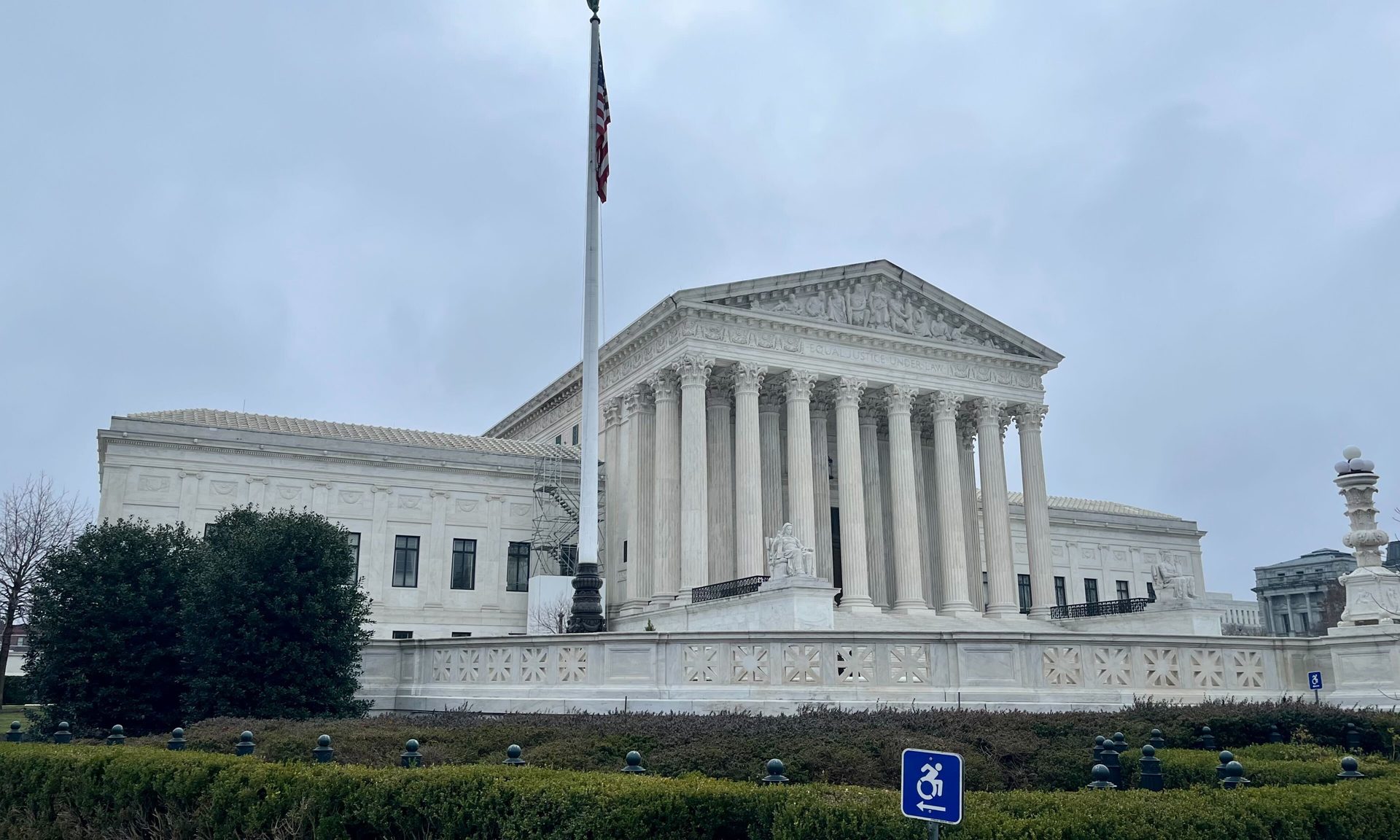Supreme Court Rejects Payday Lender Challenge to CFPB Funding
On May 16, the Supreme Court upheld the constitutionality of the CFPB's funding.

Many, or all, of the products featured on this page are from our advertising partners who compensate us when you take certain actions on our website or click to take an action on their website. However, this does not influence our evaluations. Our opinions are our own. Here is a list of our partners and here's how we make money.
Updated on May 16.
The Supreme Court rejected a challenge to the constitutionality of how the Consumer Financial Protection Bureau (CFPB) is funded, in a decision announced on May 16.
The Supreme Court overturned an appeals court decision that could have put the fate of the agency into jeopardy — along with other, similarly-funded government agencies. The case was struck down in a 7-2 decision with conservative justices Neil Gorsuch and Samuel Alito Jr. dissenting.
Following the decision, the CFPB released a statement saying, “For years, lawbreaking companies and Wall Street lobbyists have been scheming to defund essential consumer protection enforcement. The Supreme Court has rejected their radical theory that would have devastated the American financial markets.”
Meet MoneyNerd, your weekly news decoder
So much news. So little time. NerdWallet's new weekly newsletter makes sense of the headlines that affect your wallet.
How did the CFPB funding challenge unfold?
On Oct. 3, the court heard oral arguments for Consumer Financial Protection Bureau v. Community Financial Services Association of America. At the time there were numerous reports indicating that high court justices seemed doubtful about the Fifth Circuit’s ruling in the case.
The CFPB is a consumer watchdog agency funded by the Federal Reserve System, not Congress. This funding mechanism was established by a Democrat-led Congress and is meant to safeguard the agency’s funding against changes in the political climate.
Other government agencies are also funded outside of the appropriations process, including the Federal Reserve, the Federal Deposit Insurance Corp. (FDIC), the Comptroller of the Currency, along with programs like Medicare, Medicaid and Social Security.
“This ruling upholds the fact that the CFPB’s funding structure is not novel or unusual, but in fact an essential part of the nation’s financial regulatory system, providing stability and continuity for the agencies and the system as a whole,” wrote the CFPB in its statement on May 16.
The case against the CFPB was brought by the Community Financial Services Association of America and the Consumer Service Alliance of Texas, which both represent the payday loan industry. The suit alleges that the CFPB’s funding mechanism is unconstitutional under the Appropriations Clause of the Constitution. That clause says “no money shall be drawn from the Treasury, but in consequence of appropriations made by law.”
Last year, the U.S. Court of Appeals Fifth Circuit in New Orleans took on the case and in October 2022, the judges in that panel unanimously ruled against the CFPB.
The stakes in the case were high: If the Supreme Court upheld the Fifth Circuit’s ruling, it could have toppled the CFPB’s funding mechanism and stymied its ability to carry out its mission in the future. It could also, potentially, have thrown 12 years of the agency’s past actions and regulations into question. And such a decision could have drawn additional legal challenges against other agencies that are similarly funded.
What is the CFPB?
The CFPB was formed in the wake of the 2008 financial crisis, under the Dodd-Frank Wall Street Reform and Consumer Protection Act of 2010. Its mission is to implement and enforce federal consumer financial law. It does so by holding accountable the companies that market these types of products such as payday loans, credit cards, student loans and mortgages. It additionally collects consumer complaints.
The CFPB can also take legal action against companies. From 2012 to 2022, the agency has filed 322 public enforcement actions, resulting in more than $16 billion in relief to consumers and $3.7 billion in fines.
How much funding does the CFPB receive?
In fiscal year 2023, the CFPB has $3.57 billion in budgetary resources, which represents roughly 0.006% of the $6.4 trillion fiscal year 2023 U.S. federal budget. But the agency planned to spend much less — about $723.3 million, which represents about 20% of its overall resources.
What was the case against the CFPB?
The question of the CFPB’s funding wasn’t the primary focus of the original lawsuit — its 2017 payday lending rule was. That rule prevents short-term lenders from lending to consumers without reasonably determining if they can repay the debt. It also prevents lenders from withdrawing payments directly from consumers’ bank accounts when payments have been missed without permission of the consumer.
The suit originated in April 2018, was eventually struck down and then appealed in the Fifth Circuit Court. There, the panel of judges didn’t side with the two plaintiffs on their claims against the 2017 payday lending rule, but they did agree with the plaintiffs’ claim against the CFPB’s funding mechanism.
In the Fifth Circuit Court’s decision, it said the “Bureau’s unique, double-insulated funding mechanism” violated the constitution's separation of powers.
Soon after the Fifth Circuit Court’s decision was handed down, the Biden Administration appealed to the Supreme Court. On Feb. 27, the Court agreed to hear the case in its 2023-2024 session.
Article sources
NerdWallet writers are subject matter authorities who use primary,
trustworthy sources to inform their work, including peer-reviewed
studies, government websites, academic research and interviews with
industry experts. All content is fact-checked for accuracy, timeliness
and relevance. You can learn more about NerdWallet's high
standards for journalism by reading our
editorial guidelines.
Related articles







